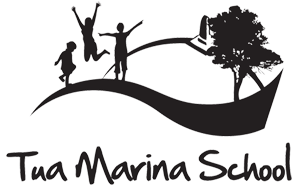In Technology, students learn to be innovative developers of products and systems and discerning consumers who will make a difference in the world.
Beliefs
Students need to develop the knowledge, skills and attitudes to enable them to use new and existing technologies, to follow the design process, and to be informed, critical, and creative when solving problems.
Learning Goals
Through our teaching and learning programmes our students should:
- Learn practical skills as they develop models, products, and systems.
- Learn about technology as a field of human activity, experiencing and/or exploring historical and contemporary examples of technology from a variety of contexts.
- Learn about structural, control, food, and information and communications technology , and biotechnology through a variety of contexts (strands):
- Technological Practice – students examine the practice of others and undertake their own. They develop a range of outcomes, including concepts, plans, briefs, technological models, and fully realised products or systems. Students investigate issues and existing outcomes and use the understandings gained, together with design principles and approaches, to inform their own practice. They also learn to consider ethics, legal requirements, protocols, codes of practice, and the needs of and potential impacts on stakeholders and the environment.
- Technological Knowledge – students develop knowledge particular to technological enterprises and environments and understandings of how and why things work. Students learn how functional modelling is used to evaluate design ideas and how prototyping is used to evaluate the fitness for purpose of systems and products as they are developed. An understanding of material properties, uses, and development is essential to understanding how and why products work the way they do. Similarly, an understanding of the constituent parts of systems and how these work together is essential to understanding how and why systems operate in the way they do.
- Nature of Technology – students develop an understanding of technology as a discipline and of how it differs from other disciplines. They learn to critique the impact of technology on societies and the environment and to explore how developments and outcomes are valued by different peoples in different times. As they do so, they come to appreciate the socially embedded nature of technology and become increasingly able to engage with current and historical issues and to explore future scenarios.
Teaching and Learning Guidelines
Our teaching and learning programmes will:
- Provide meaningful contexts
- Be integrated with Inquiry Learning Units and taught as Stand-Alone Technology lessons as appropriate
- Model and teach the design process
- Reflect the Tua Marina Curriculum Overview
- Link to key competencies, principles and values
- Consider the learning environment – intellectual, emotional, physical, and cultural engagement
- Use a variety of teaching strategies
- Incorporate ICT and Thinking Skills when appropriate
- Make use of staff strengths and community expertise
Planning
- The New Zealand Curriculum will provide the basis for the teaching and learning programmes.
- Refer to PEAK Inquiry Learning Model and MOE resources when planning e.g. TKI
- Planning will follow a coherent pathway from curriculum plans to long term plans to unit or weekly planning to teaching and learning
- Assessment data and information about students will be used to determine the teaching and learning programme.
Assessment
Information on student achievement will be gathered and analysed through a range of assessment practices e.g. rubrics, self/peer assessment, observation, NEMP tasks, etc.


